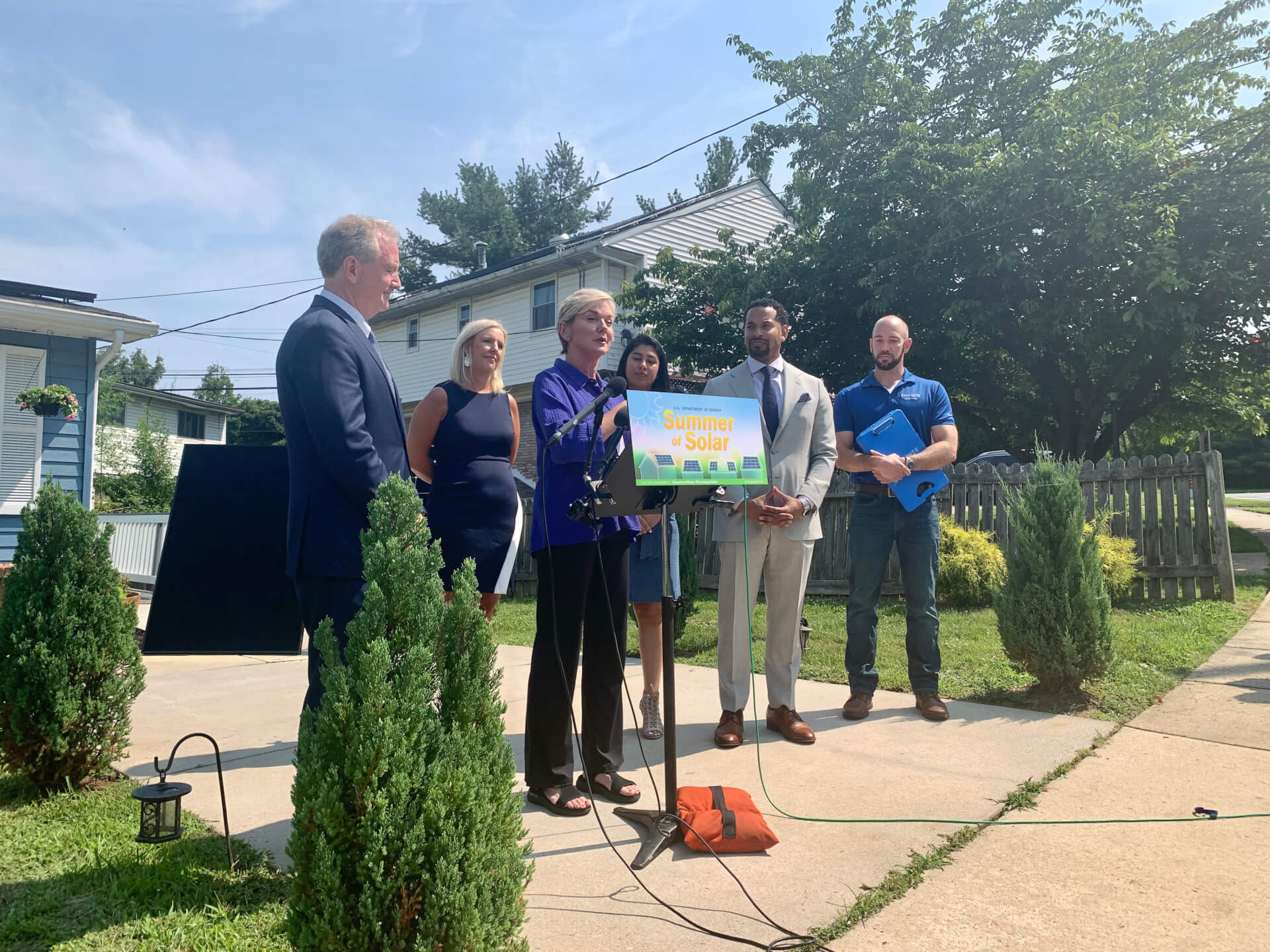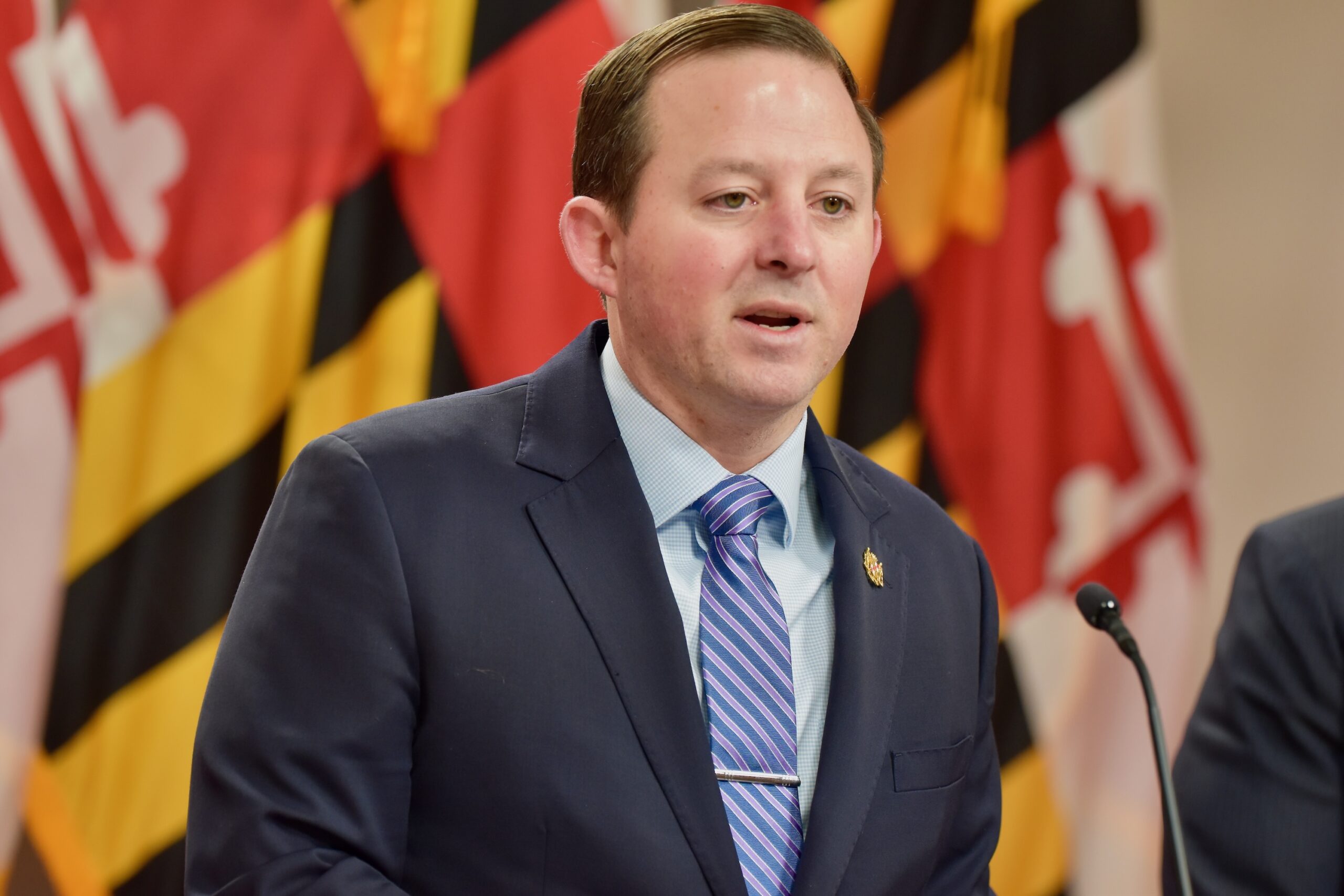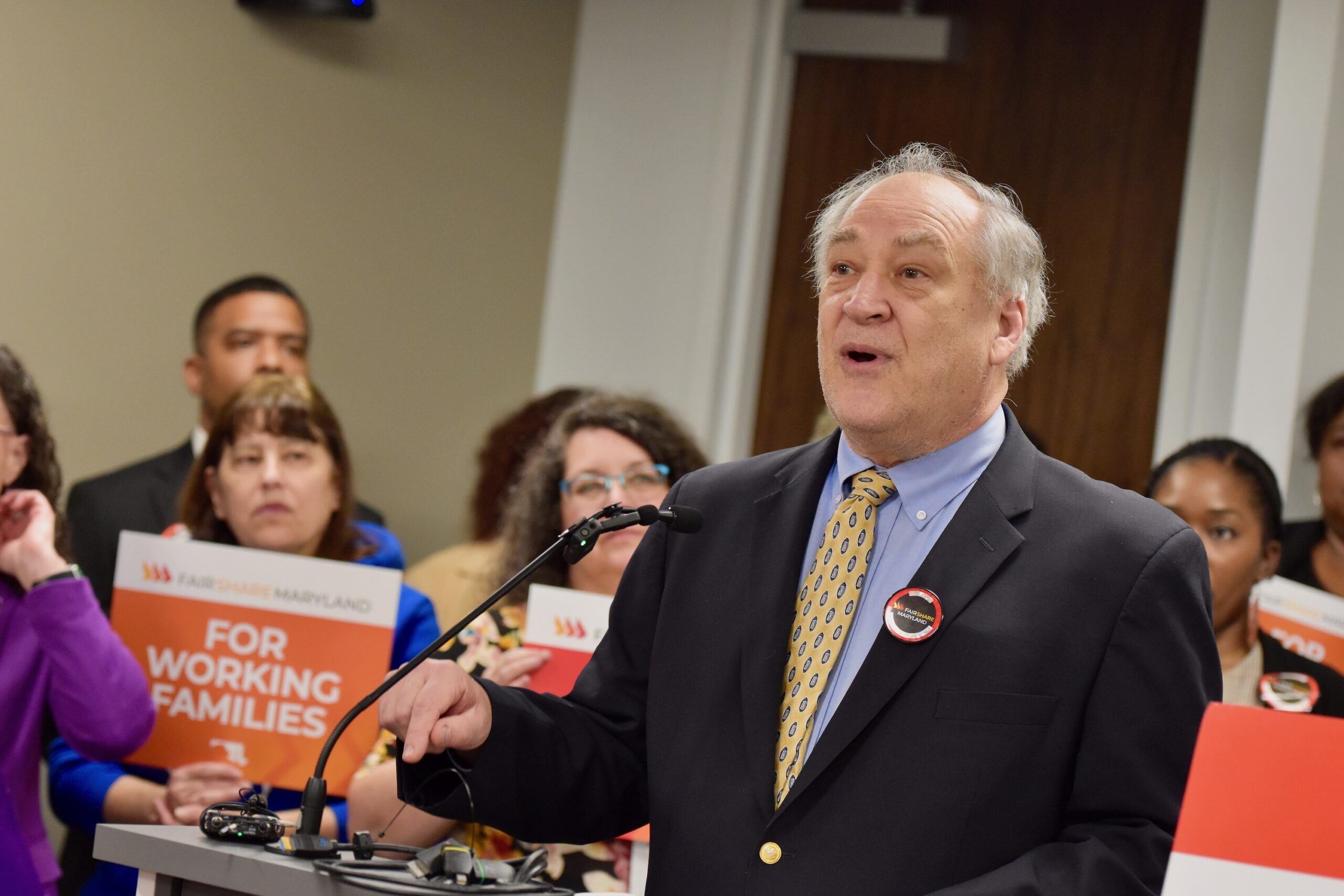County Adds Tool for One-Day Processing of Solar Panel Permits

In 2018, Laura Morales decided to install solar panels on the roof of her home in Silver Spring, hoping it would save energy and increase the value of her home.
Although it took three months to get the solar panels fully installed, Morales, who worked with a company called SunPower, said the process was smooth. Now she saves around $50 to $60 a month on her electricity bill and receives around $200 every three months as a solar renewable energy credit, she said.
“It’s a win-win. You’re going to have to pay your electricity bill regardless. The advantage of doing it with solar panels is that you’re generating clean energy and hopefully you’ll end up with some monthly savings and an increase in the value of your home,” Morales said.
But the process soon should be faster for Montgomery County homeowners who want to install rooftop solar because of a free new tool developed by the U.S. Department of Energy that will create a standardized permit process for residential rooftop solar and cut permit times.
Solar Automated Permit Processing, or SolarAPP+, allows local governments to review solar projects for building code compliance and approve projects immediately, which will speed the permit process in Montgomery County from 8-9 days to just one day, according to Montgomery County Councilmember William O. Jawando, who announced on Thursday that Montgomery County will begin using the new tool this summer.
“This is a big part of the solution if we’re going to green the grid,” Jawando said at a news conference Thursday.
Last month, Montgomery County unveiled a 300-page plan to get to an ambitious goal of zero carbon emissions by 2035. The plan proposed solar incentives and cost-effective financing options to help property owners afford solar installation.
Of more than 300,000 homes in Montgomery County, about 8,400 have solar panels on their rooftops, Jawando said.
SolarAPP+ was launched by U.S. Secretary of Energy Jennifer M. Granholm last week. The goal is to get 125 local governments to use this tool by the end of the summer. So far, 57 communities have signed on to the SolarAPP+, Granholm said during the news conference in Silver Spring.
“One of the big costs is the bureaucracy, the delays and so this is one effort to slash those soft costs in order to be able to deploy more solar,” Granholm said Thursday.
In order to meet President Biden’s goal of 100% clean electricity by 2035, the U.S. Department of Energy is aiming to get 1100 gigawatts of solar power onto the grid by 2035, she said.
Montgomery County also is working on updating its building energy performance standards, which set minimum efficiency requirements for commercial and multi-family buildings.
County Executive Marc B. Elrich (D) introduced a measure in April that would amend a law that already requires owners of commercial buildings larger than 50,000 square feet to report their energy use to the county, for public disclosure, annually. His measure would lower that threshold to require owners of commercial buildings larger than 25,000 square feet to report energy use for those properties. It also would require owners of multifamily residential buildings larger than 25,000 square feet to report those buildings’ energy use each year.
The change would require energy use reports for roughly 1,000 more buildings in the county, according to an analysis by the office of the county executive.
“If you look at the two biggest emitters, it’s buildings and transportation,” Jawando said. “Even if every home installed solar, we still wouldn’t meet our climate goals — it’s only a part of the pie.”
Targeting commercial buildings will be key, and that is why updating building energy standards performance standards is important, Jawando added.
In February, Montgomery County Public Schools signed a contract to add more than 300 electric school buses to its fleet over the next few years, with the goal to gradually convert its entire fleet to electric buses by 2035.
Montgomery County also opened its agricultural reserve — which was set aside for farming decades ago — to solar farms. Now, 2% of the land can be used for solar. Last week, the county got its first two-megawatt solar farm application, Jawando said.
“There is no one solution — that’s why it’s called a climate crisis,” Jawando said.




 Creative Commons Attribution
Creative Commons Attribution